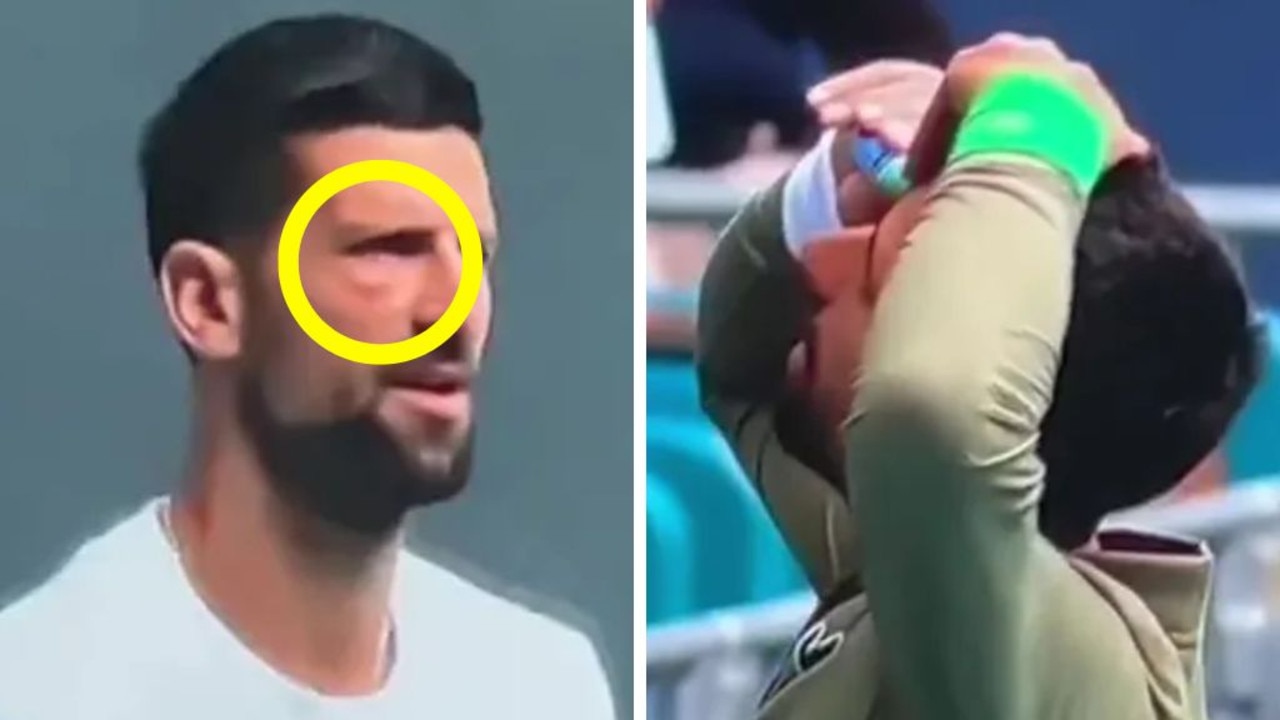Australian Open 2023 scheduling anger: Novak Djokovic, Andy Murray & Agnieszka Radwańska call for change
Former world No.2 Agnieszka Radwańska says the Aus Open’s late night games are sabotaging players, who are so high on adrenaline that its like they were partying all night.
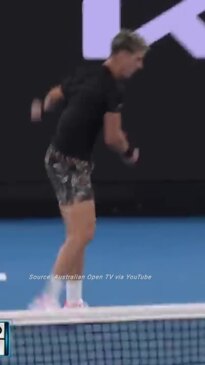
Tennis
Don't miss out on the headlines from Tennis. Followed categories will be added to My News.
A former world No.2 says she felt like she was “just partying all night” after playing tennis at an ungodly hour as calls grow for the Australian Open to prevent matches continuing after midnight.
Marathon man Andy Murray urged Tennis Australia to adopt the US Open’s format of playing only two matches during the day and starting night sessions earlier after his 4am finish that polarised the tennis world.
Two-time Melbourne Park semi-finalist Agnieszka Radwańska told News Corp that playing all night was unfairly sabotaging players who dreamed about winning grand slams.
“I remember playing so many night sessions, and it’s not helping. It’s not helping at all,” the 33-year-old said.
“There’s so much adrenaline and then you have to have a couple of hours until you fall asleep. So when you fall asleep around 6am, 7am – even 5am – I felt like I was just partying all night.
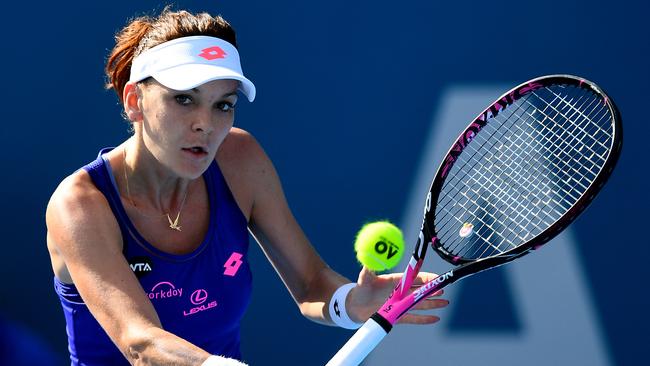
“Because I was just exhausted. It’s hard to recover in the middle of the night or the morning, so when you have physio in your room until 4am or 5am it’s not really the thing that’s helping.
“And then you’re playing again and again. It’s not about one match, it’s about to win the tournament and playing so many matches in a row.
“Especially in the men’s draw this is the problem when the match goes to five hours or they’re playing so late or the girls are playing afterwards.”
Like Murray, Radwanska said the solution was obvious.
“I think the night session should start maybe a little bit earlier then there’s some normal hours they can finish,” she said.
“Or just have one match or something that’s going to go until maybe 1am maximum, or even midnight.”
While Murray was on court past 4am he was far from alone in being forced to play well beyond midnight.
Australian Alexei Popyrin’s first-round win finished at 2am while Victoria Azarenka’s win against Lin Zhu finished at 2.17am.
That women’s match did not start until around 11.30pm on Rod Laver Arena.
Asked what time she would get to bed, Azarenka replied: “I don’t even know what time it is. Probably I’ll be up till 6am, then mask on and sleep during the day”.
‘S--- HAPPENS’: AO CULT HERO SLAMS SCHEDULING WHINGERS
Another past-2am finish at Melbourne Park has Australian Open scheduling again firmly in the spotlight as tournament organisers vow to assess the future of wee-hour finishes.
As one sports scientist highlighted the physical damage inflicted upon players who are unable to deliver prime performances in late-night matches, the latest-ever finisher at the Australian Open declared players had to endure.
Two-time Australian Open champion Victoria Azarenka advanced to her sixth Melbourne Park quarter-final early on Monday morning, with her victory over China’s Lin Zhu wrapping up at 2.17am.
Tournament director Craig Tiley on Monday described late finishes as “not ideal” but committed to ensuring scheduling was part of this year’s tournament review.
“It was two hours and 40 minutes of complete pressure,” Azarenka said after the match.
“I don’t even know what time it is.
“Probably I’ll be up till 6:00am, then mask on and sleep during the day.”
Tennis great Chris Evert questioned the match’s timing, asking “what other sports, if any, compete at 2.30am???”, while counterpart Pam Shriver said she was “sad for women’s singles to start this late”.
Watching Azarenka and Zhu… what other sports, if any, compete at 2:30 am??? 😳😳😳🥴🥴🥴@AustralianOpen
— Chris Evert (@ChrissieEvert) January 22, 2023
I am sad for women’s singles to start this late. 🤬😡🤬😡🤬😡
— Pam Shriver (@PHShriver) January 22, 2023
Marcos Baghdatis, who famously played against Lleyton Hewitt until 4.34am in 2008, said “s--- happens” and players had to “understand both sides”.
“Looking at it now, as a retired player, it’s been an honour to have been in that match,” Baghdatis told News Corp.
“I went back to the hotel and people were coming down for breakfast, and you’d just finished a professional match. I know it sounds tough, when you go through it, you’re frustrated.
“At the end, that’s the way it is. If there is a way to make it happen for both sides, but if you see if from the tournament perspective, it’s tough also.
“Understand both sides. You’re a professional athlete, you know it’s going to be tough. I’ve ben playing tennis for 17 years, it happens to me once, and maybe never to another player.”
Dr Anthea Clarke, a senior lecturer sport and exercise science at La Trobe University told News Corp that recovery from late-night matches can impact for many days afterwards.
“The late night games may impair the natural circadian rhythm of the athlete, meaning that not only is the first night’s sleep impacted, but subsequent nights as well,” she said.
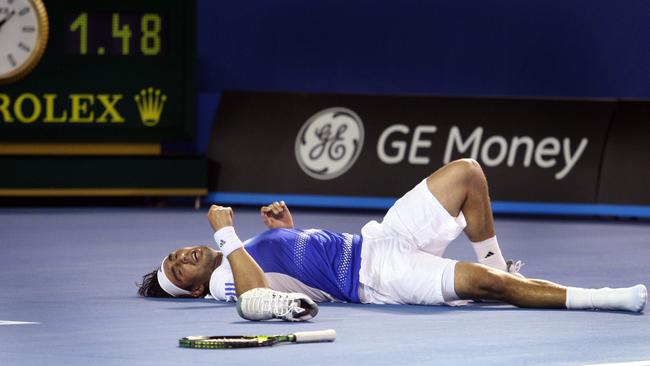
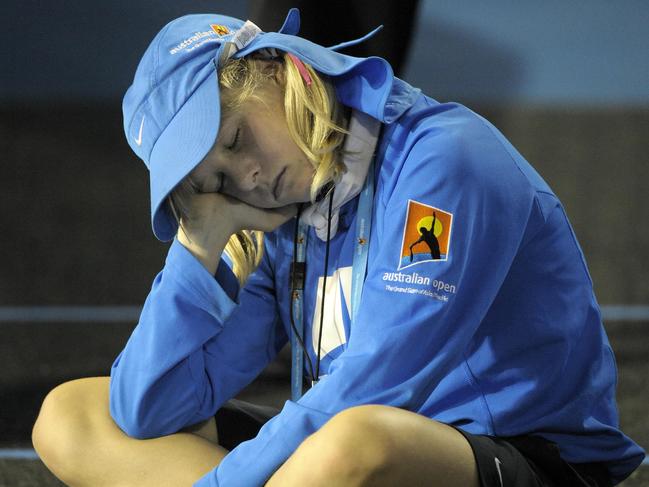
“While there are strategies these athletes can put in place to prepare and recover from late night games, it likely still takes a number of days before an athlete is back to their pre-game performance levels. If you then have to back up with a second late-night game, this impact is likely compounded making it even more difficult to recover sufficiently.”
The sports science specialist said curfews could also lead to better contests.
“Athletes would prepare for the possibility of late night games, however, it is very difficult to produce career best performances at such times in the day,” Dr Clarke said.
“I do not see any negatives in implementing such curfews, and instead, think it may allow for even more exciting tennis to be had.”
Tiley said the option of a curfew had been put to players but was firmly rejected.
“We always look at (scheduling) and we always take the feedback of the players,” he said on SEN.
“We’ll go and debrief when we do after the event, but it doesn’t always mean that we can change it.
“In many ways, we’ve got a system that works, but we’ll always look at it.”
HEAVYWEIGHTS WEIGH-IN ON SCHEDULING
Nine-time Australian Open champion Novak Djokovic – who heads the recently-formed Professional Tennis Players Association, which aims to act as a union and strengthen the voice of players on the tour – said something had to give.
“Players’ input is always important for tournament organisation,” Djokovic said.
“Whether it’s decisive, we know that it’s not because it comes down to what the TV broadcasters want to have. That’s the ultimate decision-maker.
“For the crowd, it’s entertaining, it’s exciting, to have matches (at) midnight, 1, 2, 3am. For us, it’s really gruelling. Even if you go through and win, prevail in these kind of matches, you still have to come back. You have your sleeping cycle, rhythm disrupted completely, not enough time really to recover for another five-setter.
“Something needs to be addressed in terms of the schedule after what we’ve seen this year.”
Andy Murray’s hopes of a first Australian Open title were completely ruined after he was involved in a marathon match with Australia’s Thanasi Kokkinakis that finished after 4am.
Battling exhaustion he was knocked out of the tournament in his next match when he went down to Spain’s much fresher Roberto Bautista Agut.
Although he refused to blame his defeat on his tiredness, Murray did reveal the devastating impact the late night marathon had on his body.
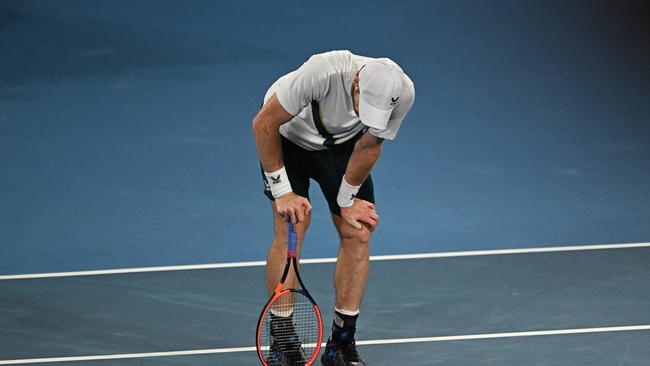
“I slept from 6 until 9 the morning I played the match with Kokkinakis, which obviously isn‘t enough,” he said.
“Then I had to come in here. I had about seven or eight blisters that I had to have drained and then he put this liquid in to dry it. I had to come in the morning to give that time to settle. Then I went back to the hotel, slept for a few hours, and then hit for, like, 15 minutes yesterday … just the ice baths, saw my physio.
“My feet didn‘t feel great. My legs were actually okay. They weren’t too bad. But I was struggling with my lower back. That was affecting my serve.”
Players have been complaining about the insane scheduling at the Australian Open for years but nothing has been done to fix the problem.
In light of all the complaints this year, Tiley conceded he may take a fresh look at the scheduling issue if players felt strongly about it.
Murray is not the first player to raise the issue and he says there is scientific evidence backing the calls for change.
“I’m sure if you went and spoke to some sleep experts and sports scientists, et cetera, the people that actually really know what’s important for athletes to recover, they would tell you that sleep is the number one thing, that that’s the most important thing,” he said.
“Finishing matches at 4 in the morning isn‘t good for the players. I would also argue it’s not good for the sport, anyone involved in it.”
The 35-year-old even suggested a solution to tournament organisers that would eliminate the problem.
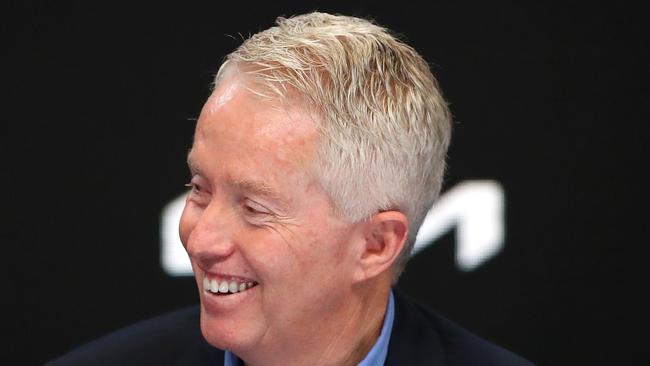
His idea included scrapping the traditional 11am start, which is a throwback to the days when the Australian Open used to play in grass.
Matches were always scheduled to start at 11am so any morning dew on the courts would dry up to prevent the players from slipping but the tournament hasn’t been played on grass since it was switched to hardcourts in 1988.
“I do think there’s some quite simple things that can be done to change that. I think the US Open went to playing two matches in the day session,” Murray said.
“That would stop the day matches running into the night session starting too late. I think that‘s quite a simple one that you could look at. You’d still get quality matches during the day.
“The people who bought ground passes would get to see more of the top players, which would be excellent for them. I think if you did that, you could also potentially bring the night sessions slightly earlier (from 7pm), as well, like 6pm or 6:30pm.
“That time, those few hours, can make a difference to the players. I think that‘s something that’s probably worth considering moving forwards.”



